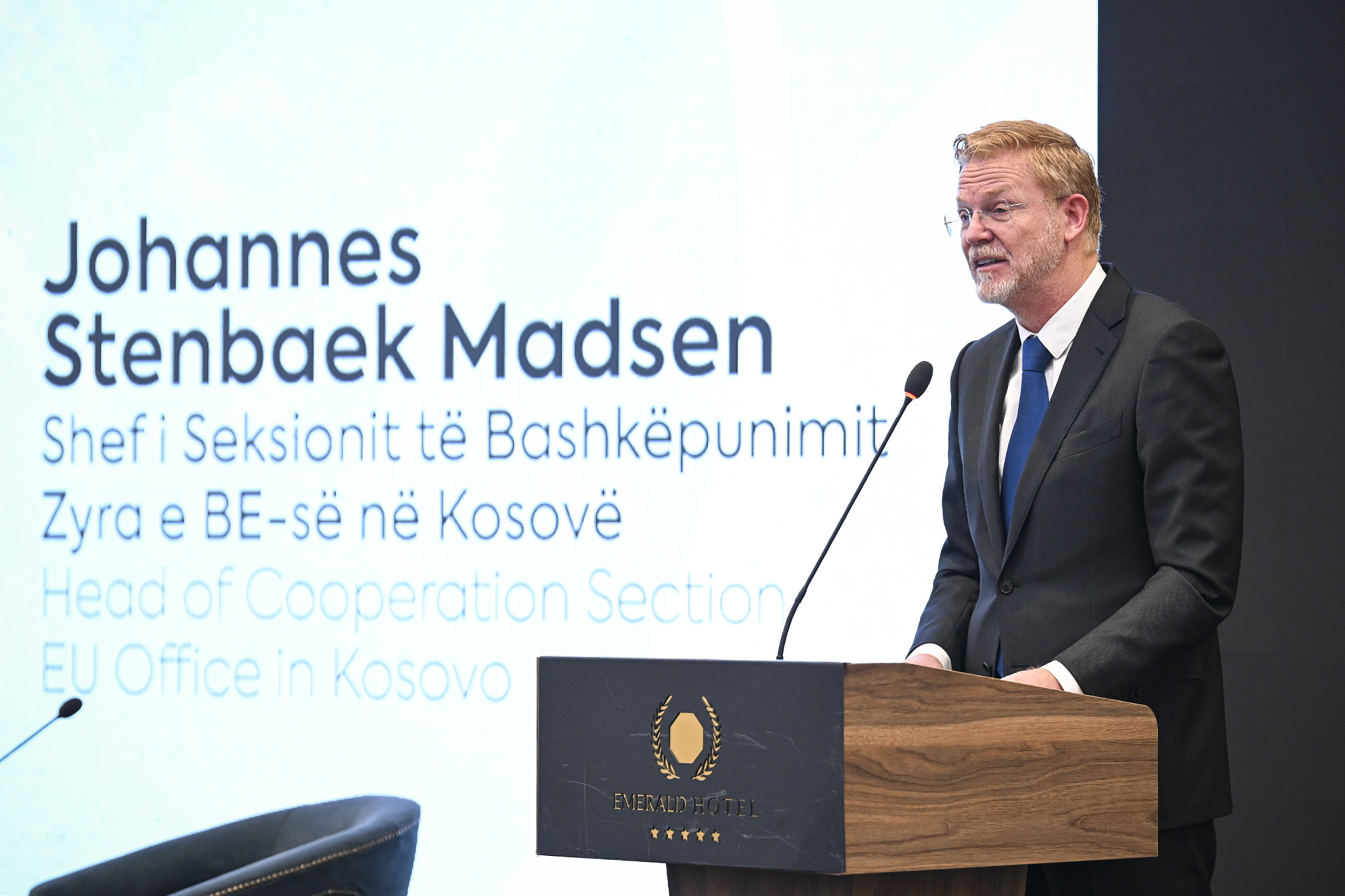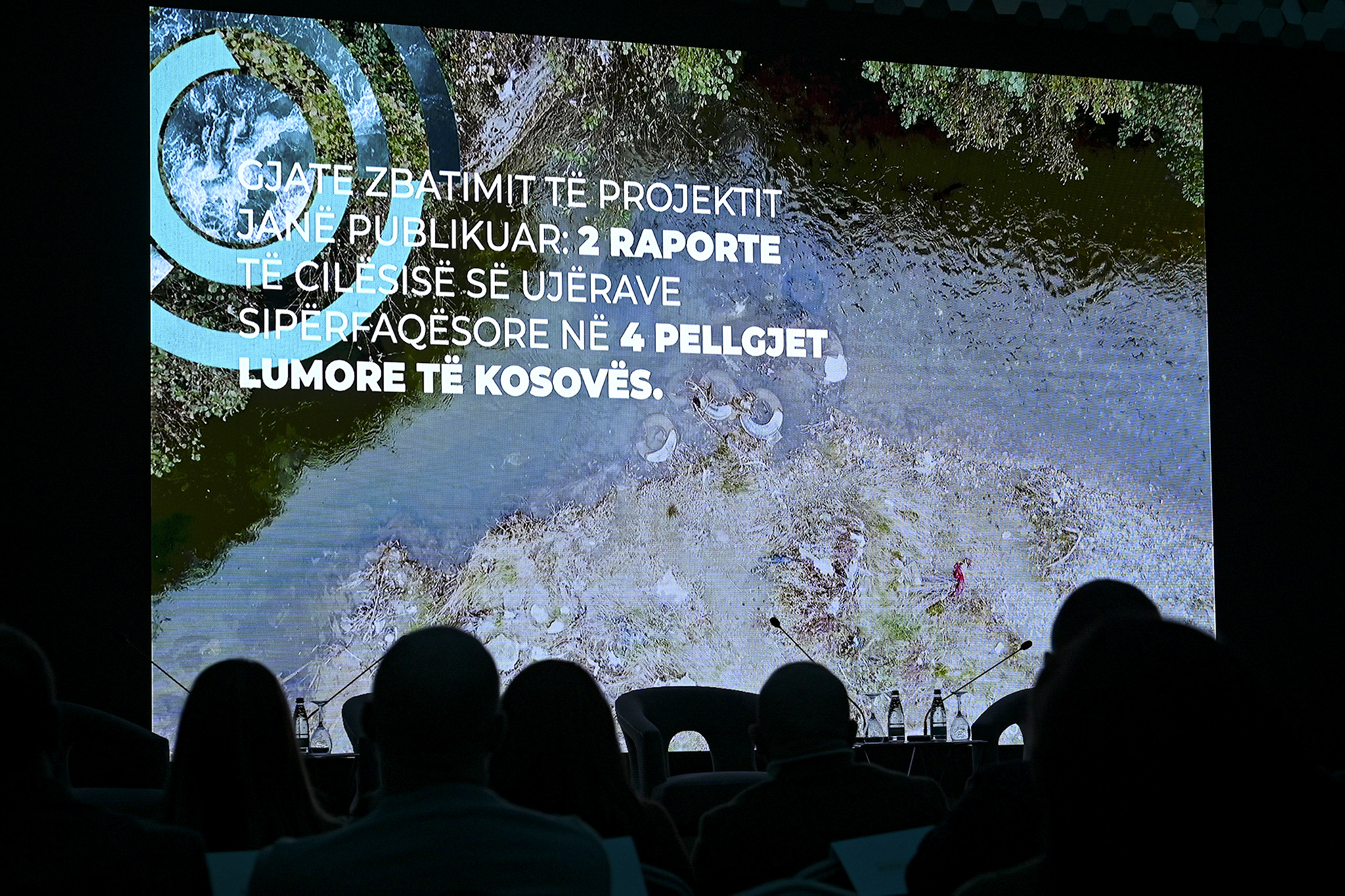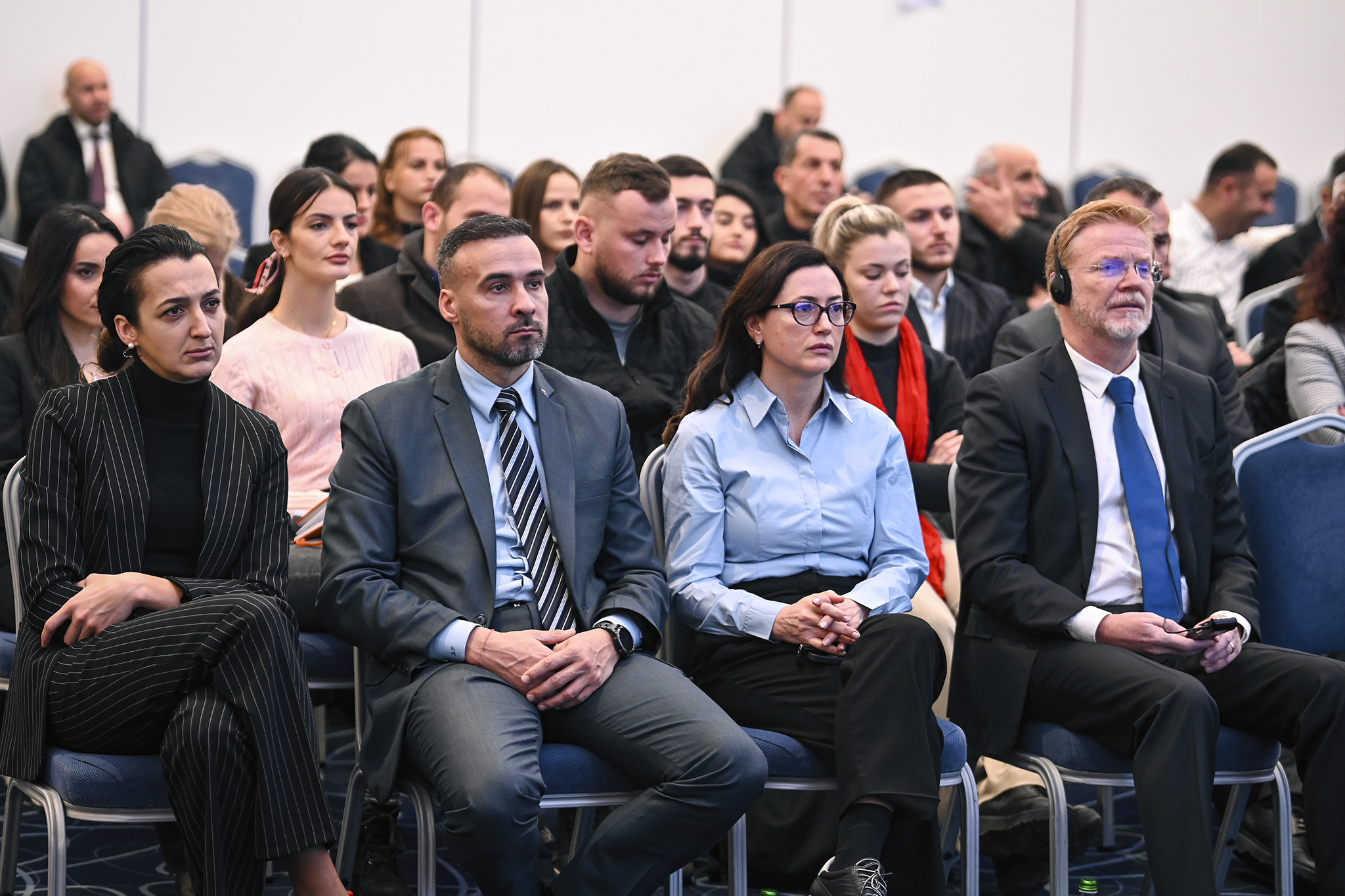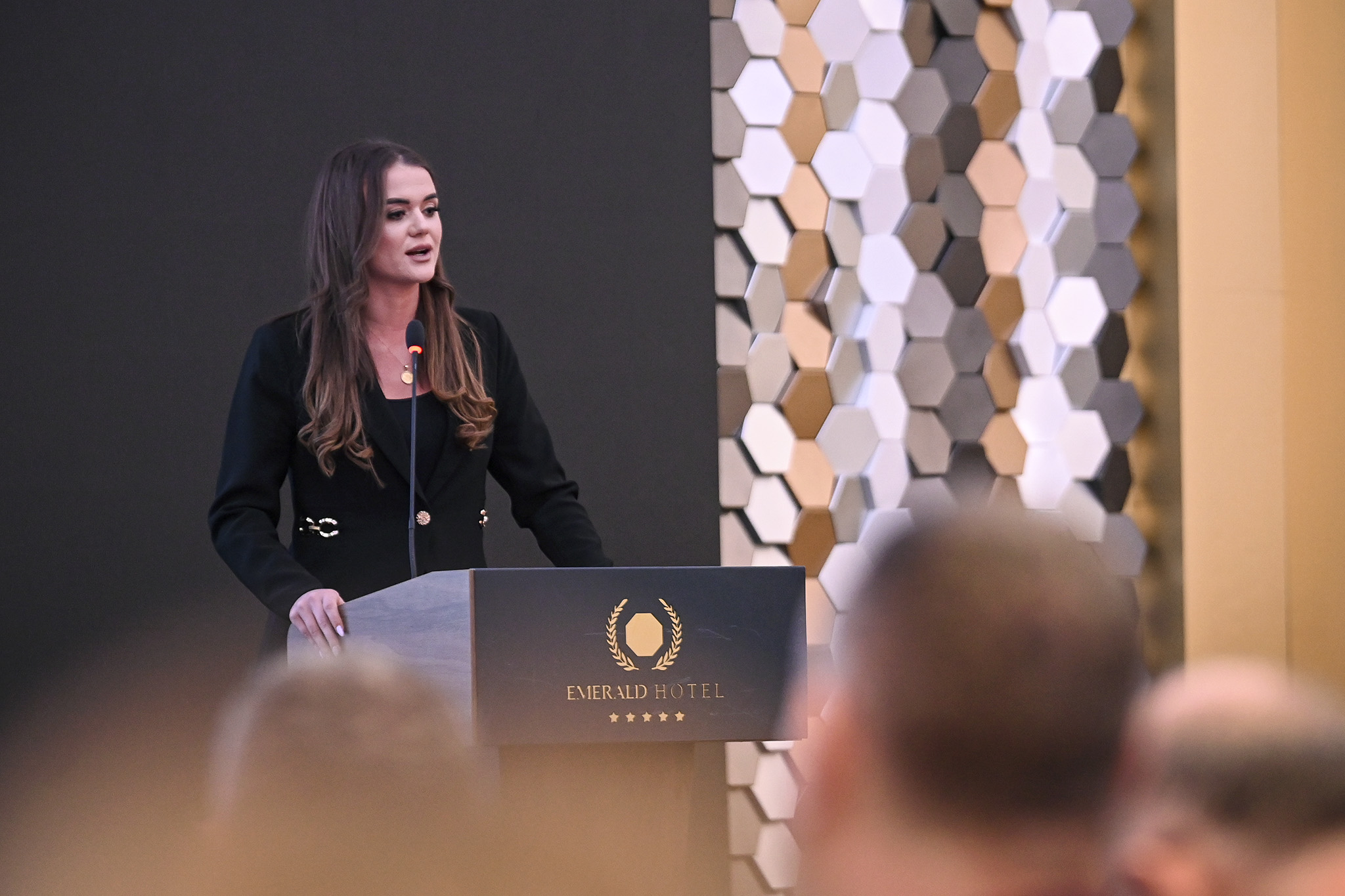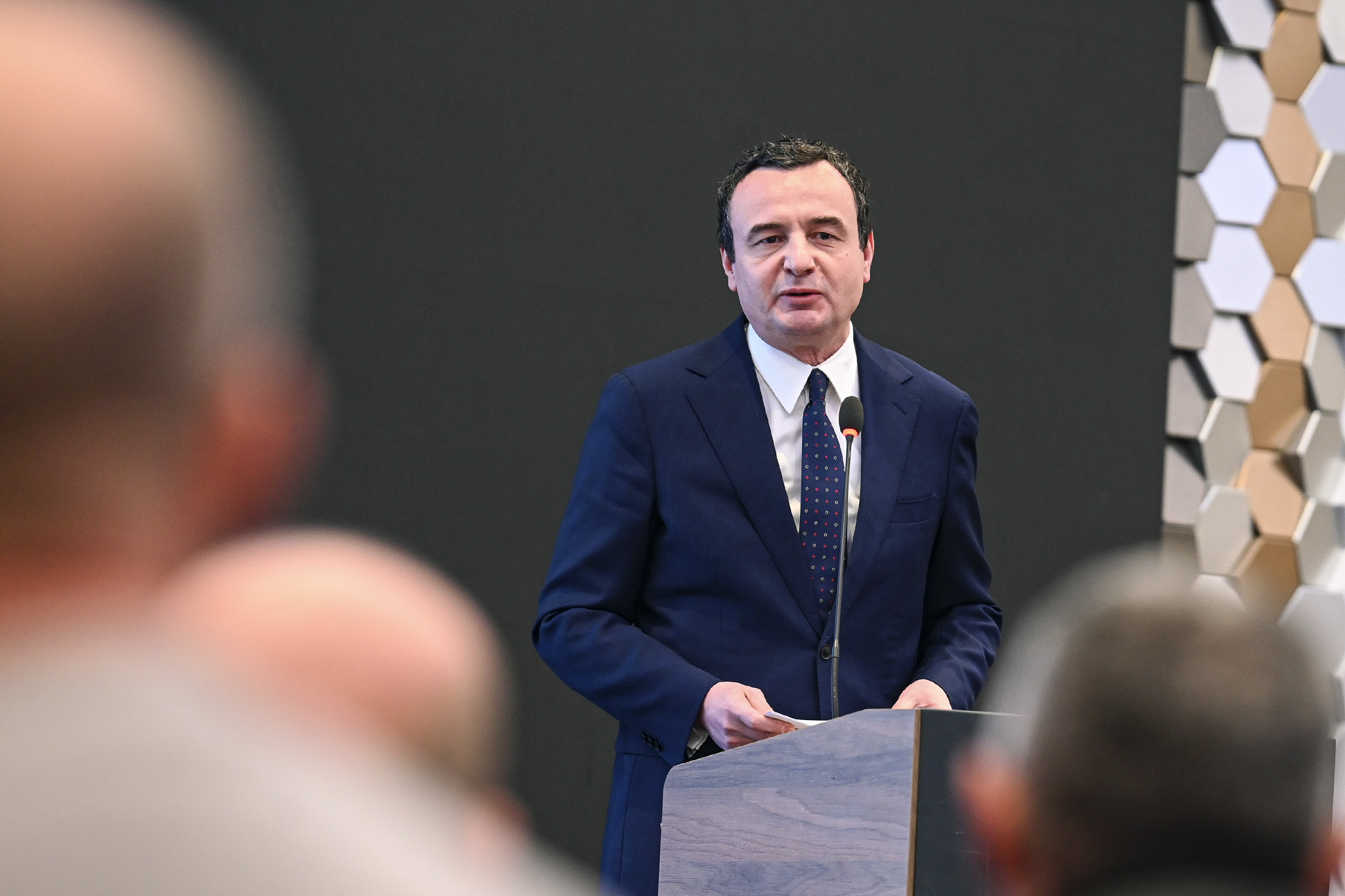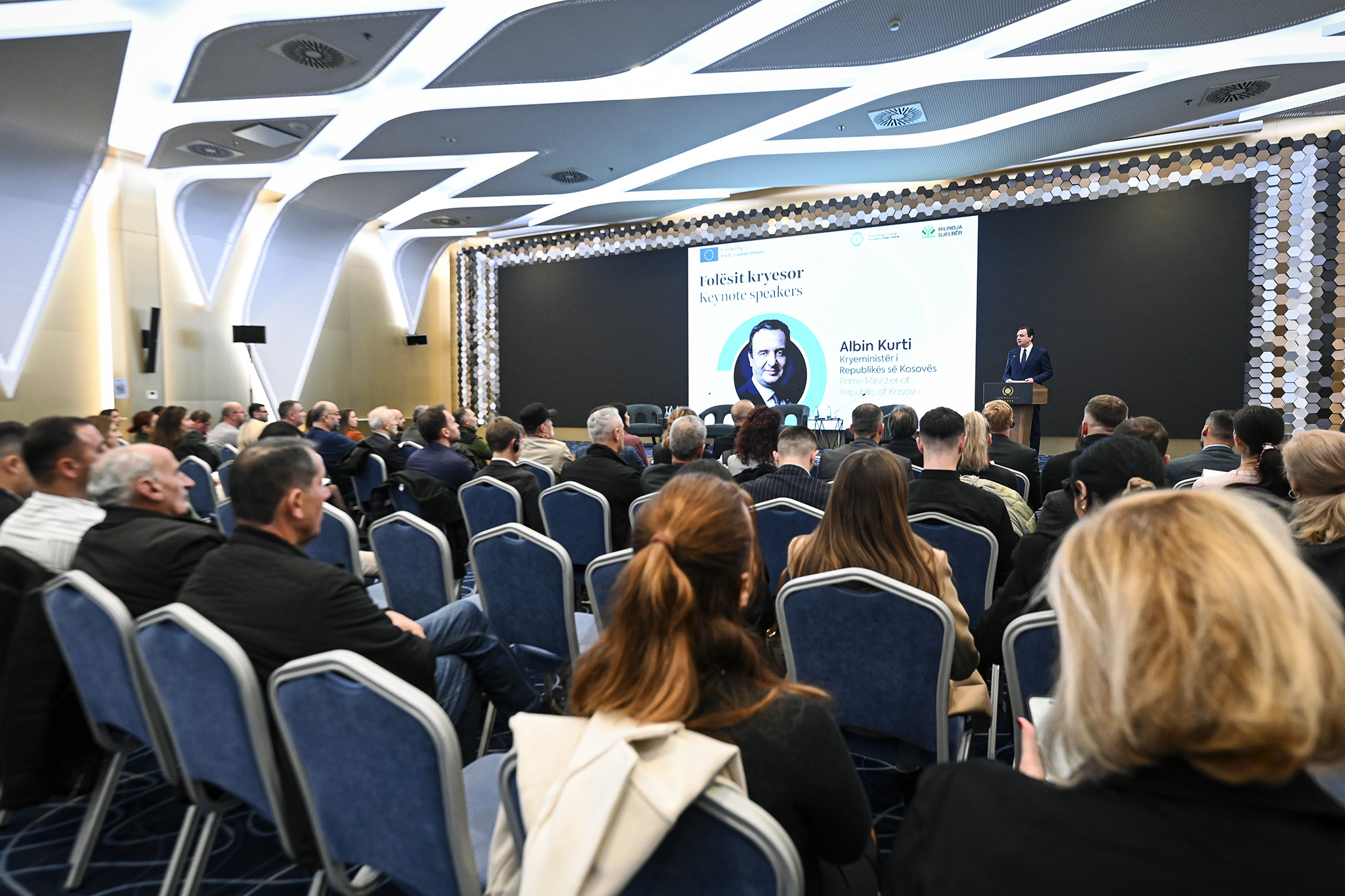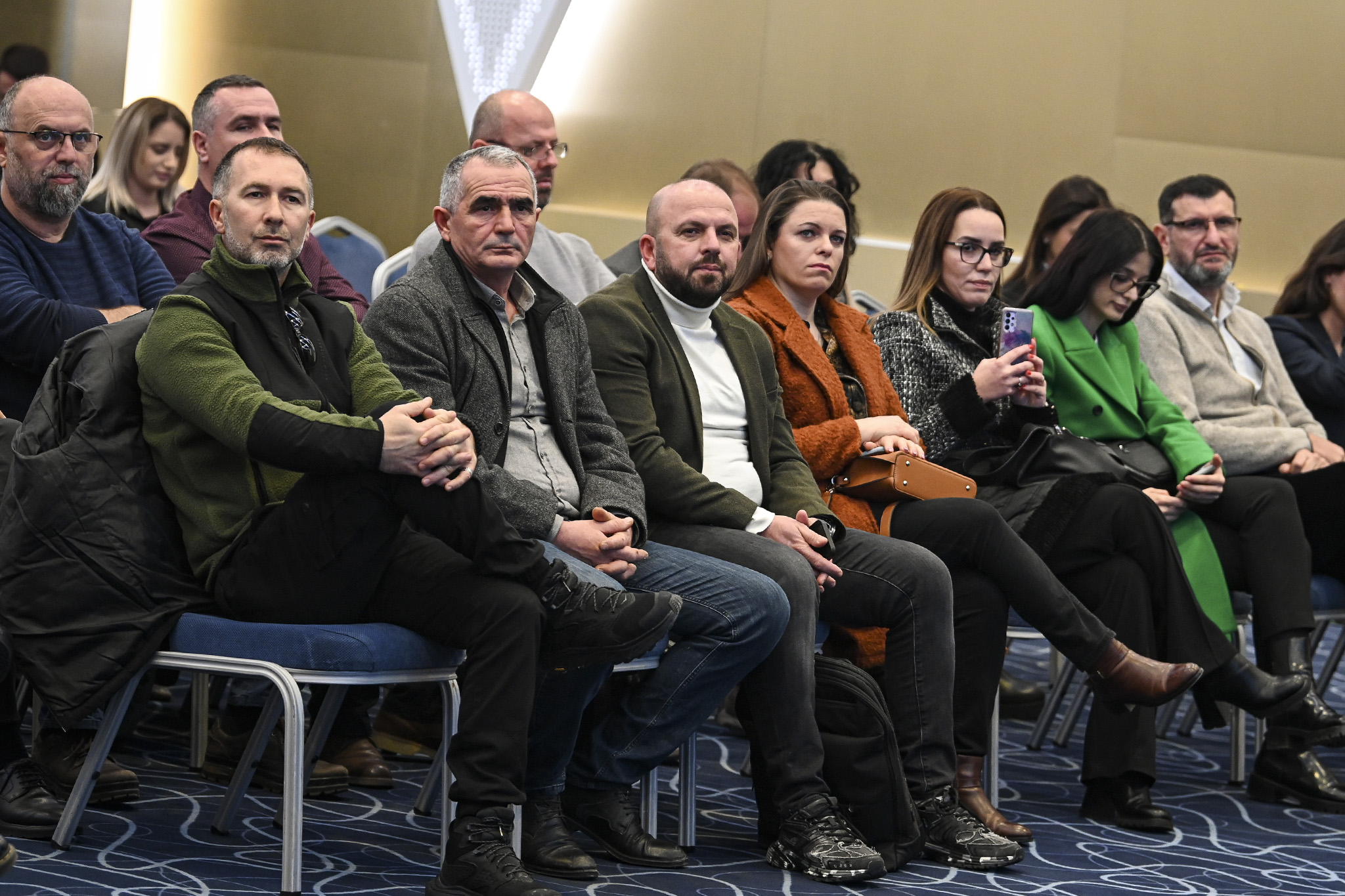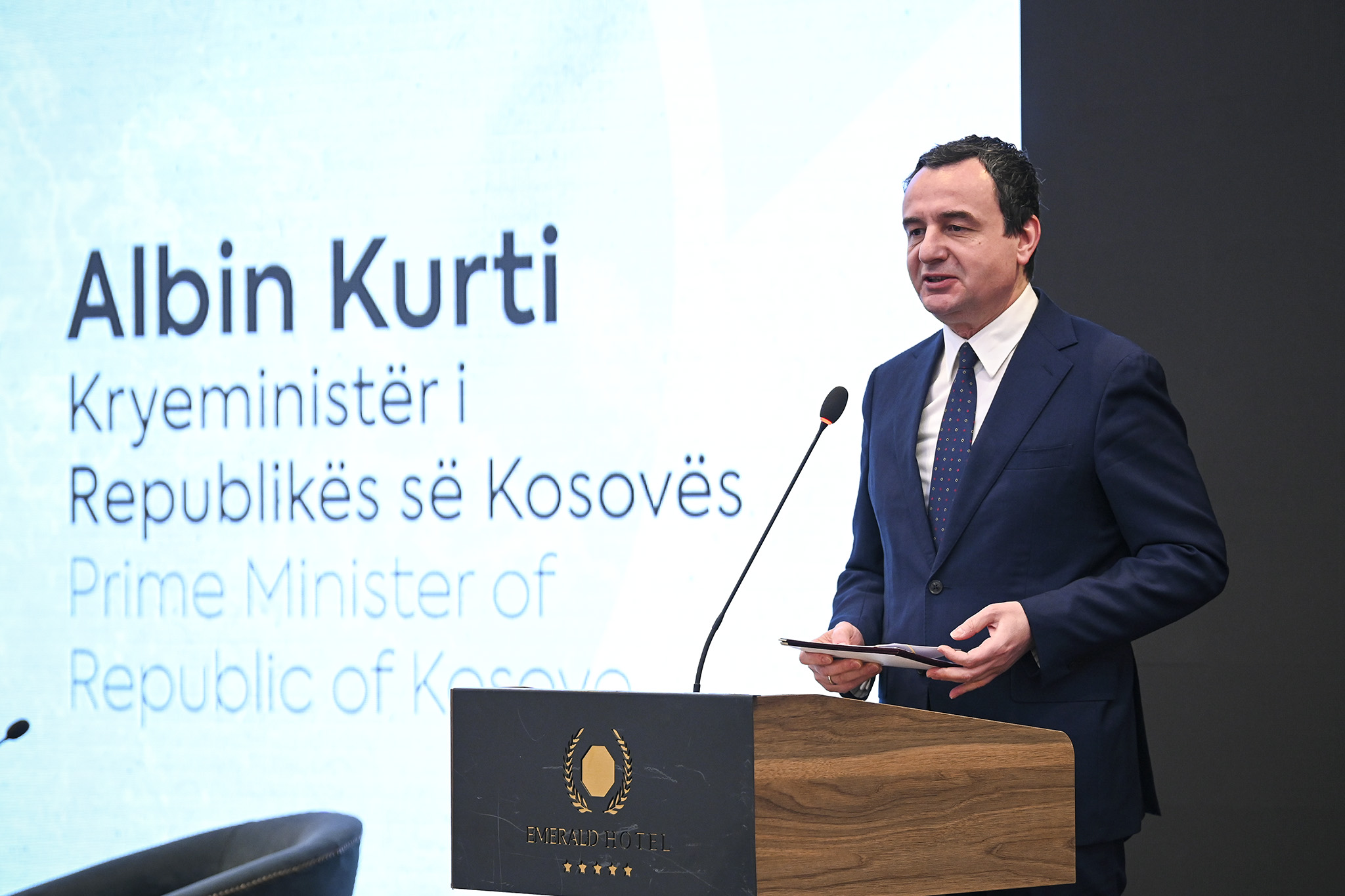Pristina, 19 December 2024
The Prime Minister of the Republic of Kosovo, Albin Kurti, participated today in the closing conference of the project “Promoting Universal Access to Clean Water,” organized by Green Renaissance and financed by the European Union Office in Kosovo.
At the conference, the Prime Minister expressed his deep gratitude to Green Renaissance and the European Union Office for their cooperation in this initiative, which also serves as proof of our shared commitment to a better future.
“For us as a government, the issue of water is not just a technical problem of supply but a strategic challenge directly tied to climate change and the future of our economy and the well-being of our citizens. We are all aware that Kosovo faces a harsh reality. We have limited water resources and are among the countries with the smallest water quantities in the region. Therefore, managing, protecting water resources, and making concrete investments to increase our water capacities are a national priority,” he stated.
Speaking on climate change, the Prime Minister highlighted that today 65% of the territory and 82% of the population are at risk of river flooding. He mentioned the floods of 2013, 2014, and 2016, which caused direct damages exceeding four million euros, while recurring droughts have resulted in water shortages in 80% of our municipalities.
The Prime Minister outlined the steps the Government has taken to address this critical situation, noting that within two years, hydrological and meteorological stations have tripled, creating an advanced early warning system for floods and droughts; significant projects have been initiated for constructing new reservoirs in Firaje, Shtime, and Pollata, among others, which will increase water capacities by over 204 million m³, ensuring water supply for drinking and agriculture.
In his address to the attendees, the Prime Minister also spoke about the State Water Strategy, which addresses the challenges of climate change and the construction of long-term resilience. Additionally, capacities at the Regional River Basin Authority have been enhanced and municipalities equipped with advanced flood risk maps to aid in planning and rapid response. Investments have been completed in wastewater treatment plants in Peja, Gjakova, and Prizren, while other wastewater treatment projects remain on the Government’s priority list for implementation. All these efforts will contribute not only to reducing pollution but also to increasing the capacity for the use of clean water for drinking and irrigation, added Prime Minister Kurti.
Concluding his speech, he stated that access to clean water is a matter of justice and survival for our citizens and that this project, which is being finalized today, is a testament to our shared commitment to protecting this vital resource and ensuring a sustainable future in this era of climate challenges.
Prime Minister Kurti’s full speech:
Honorable Mr. Jeton Raka, Deputy Minister at the Ministry of Environment, Spatial Planning and Infrastructure,
Honorable Mr. Urim Xharavina, Executive Director of Green Renaissance,
Honorable Mr. Johannes Stenbaek Madsen, Representative of the European Union Office in Kosovo,
Distinguished representatives of central and local institutions,
Experts and activists for the protection of water resources in our country,
Honored guests,
Ladies and gentleman,
It is a great honor and responsibility for me to be here with you today to mark the conclusion of a project that addresses one of the most existential challenges for our country: ensuring access to clean water for all our citizens without discrimination.
This is a concrete example of our shared commitment to safeguarding a fundamental human right and building a more sustainable future for Kosovo. I wish to express my deep gratitude to Green Renaissance and the European Union Office for their cooperation in this initiative, which also serves as proof of our shared commitment to a better future.
For us as a government, the issue of water is not just a technical problem of the supply but a strategic challenge directly tied to climate change and the future of our economy and the well-being of our citizens. We are all aware that Kosovo faces a harsh reality. We have limited water resources and are among the countries with the smallest water quantities in the region. Therefore, managing, protecting, and preserving water resources, as well as making concrete investments in them, is vital and a national priority.
Climate change is making this challenge even more complex. Floods and droughts that were once rare occurrences are now becoming increasingly frequent and more severe. Today, 65% of the territory and 82% of the population are at risk from river flooding. For instance, the floods of 2013, 2014, and 2016 caused direct damages exceeding 4 million euros, while recurring droughts have resulted in water shortages in 80% of our municipalities.
In response to this critical situation, we in the Government have taken several clear and determined steps:
Within two years, we have tripled the number of hydrological and meteorological stations, creating an advanced early warning system for floods and droughts. These stations have been installed in every corner of Kosovo and across every river basin to ensure that our response is not only reactive during crises but also preventive.
Given Kosovo’s limited water resources, we have initiated significant projects for constructing new reservoirs in Firaje, Shtime, Pollata and many other locations. These reservoirs will increase water capacities by over 204 million m³, ensuring supply for drinking water and agriculture.
One of Kosovo’s reservoirs, the largest, Lake Ujman located in the Municipality of Zubin Potok, has a volume three times larger than the combined capacities of the other three reservoirs, Radoniqi, Batllava and Badovci.
Thus, on one hand, we have limited water resources, and on the other, they are centralized.
The volume of water in our country is not evenly distributed, even though all citizens deserve equal access. So, our goal is not only to protect and preserve the resources we have but also to increase the water volume for our country.
Kosovo’s water resources resemble an upside-down plate, where water originates within our country but flows away, as if to say, ‘this is not meant for you. Four river basins in Kosovo ultimately discharge into three different seas.
Therefore, it is vital that part of what originates here remains here. This is because our existential needs for drinking water, agricultural irrigation, and our growing economy depend on it.
Our State Water Strategy addresses the challenges of climate change while also focusing on building long-term resilience. This includes new regulations for flood protection and sustainable projects, and we have also improved and increased the capacities in the Regional River Basin Authority, and we have provided municipalities with advanced flood risk maps to assist in planning and quick response.
Our investments in wastewater treatment plants have already been completed in Peja, Gjakova and Prizren. Other projects for wastewater treatment remain on the Government’s priority list and will be implemented. These efforts will contribute not only to reducing pollution but also to increasing the capacity for the use of clean water for drinking and irrigation.
Honored guests,
Access to clean water is not just a technical or economic issue – it is also a matter of justice and survival for our citizens. This project, being concluded today, is a testament to our shared commitment to protecting this vital resource and ensuring a sustainable future in this era of climate challenges. With sustainable investments and a clear vision, Kosovo can and will be an example of how great challenges can be turned into new opportunities for development.
Thus, as the first verse of the song asks, “Do those springs still flow with water” I firmly believe that the springs do hold water, but we must preserve, protect, and channel them into accumulative lakes for our citizens, agriculture and businesses.
Thank you!
Last modified: December 24, 2024
